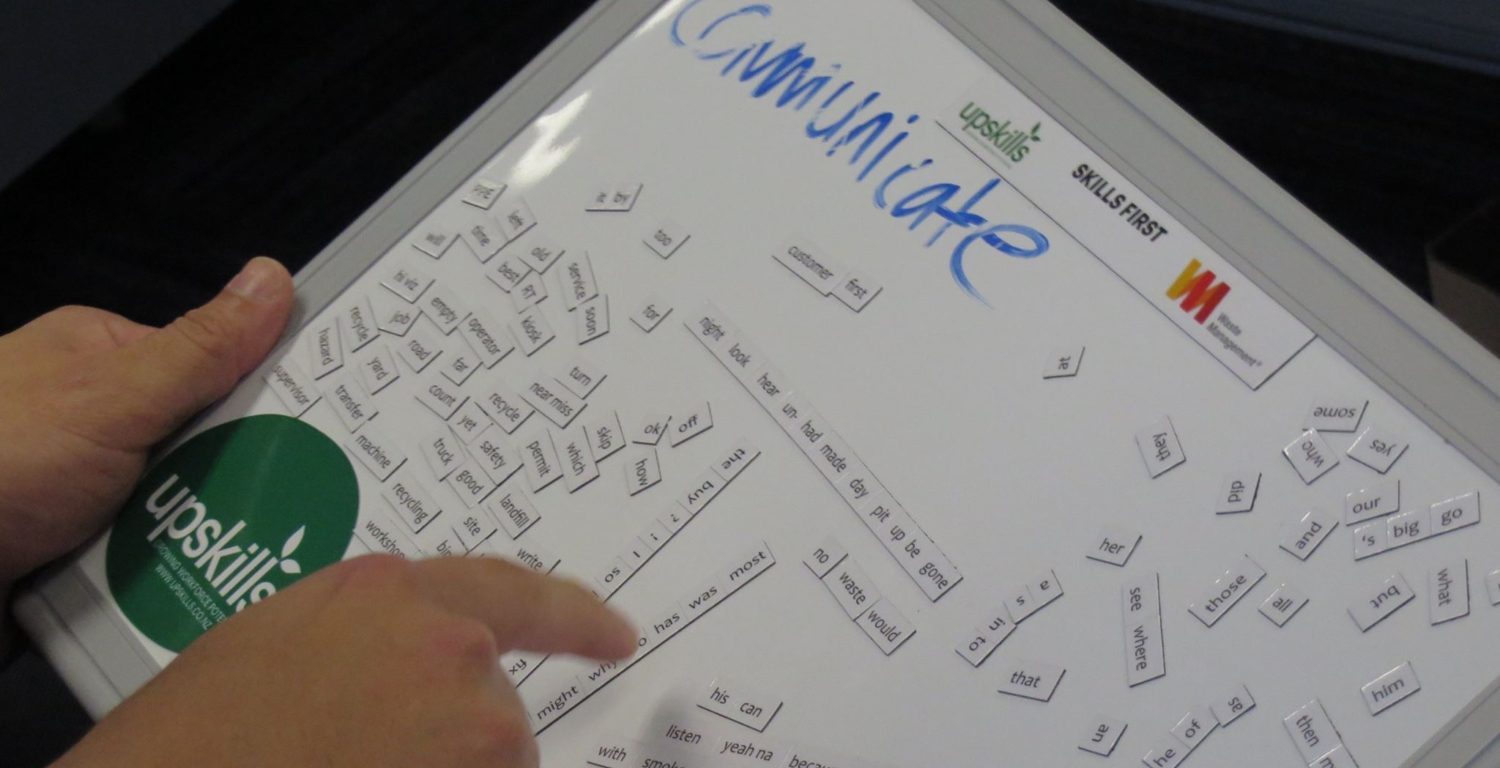When it comes to the workplace, literacy is about more than words on a page.
So what do you need to know about workplace literacy and how it’s affecting your organisation?

Firstly – is there really a problem?
There is – and don’t just believe us. The OECD’s Survey of Adult Skills (PIAAC) suggested that nearly a million working-age Kiwis may not be armed with the skills they need to fully take part in education, life, and work.
Despite this clear need for an improvement in literacy, 65% of organisations, according to the latest New Zealand Diversity Survey, don’t believe that they need to put a real focus on improving the literacy, language, and numeracy needs of their diverse workforce.
Literacy (in all its forms) is something that every New Zealander is entitled to – so why aren’t more organisations putting this at the top of their priority list?
What do we mean by workplace literacy?
Of course, many still see literacy as simply being able to read – and on its most basic level, perhaps that’s true. For many recent immigrants or people for whom English isn’t their first language, having the basic literacy skills to simply speak and read in the language that management uses is already a challenge in itself.
However, workplace literacy is about so much more than reading words on a page.
It’s about being able to apply critical thinking to any task or using new technologies; knowing how to interpret workplace policies and ask for leave; doing simple calculations and knowing how to make informed decisions around the way you manage money; or being able to understand communications from higher-ups and having the confidence to speak up if you disagree or want to know more.
For people in management positions, this may all come naturally but for many on the shop floor (or even in more supervisory positions), this is a constant challenge.

How does literacy (or lack thereof) affect organisations?
A PIAAC study concluded that people with low literacy and numeracy skills are more likely than those with high skills to be economically disadvantaged, unemployed, and in poor health. Many employees never move up within organisations and stay in low-paying entry-level jobs for their entire lives, which impacts not only their wallets, but also their confidence, happiness, and the wellbeing of their family.
However, it’s not just the person themselves who is disadvantaged.
Imagine having English as your second language and being handed a complex health and safety policy written in legal English. Are you likely to read it carefully and assess how it will affect your everyday work? Or are you more likely to sign it and then put it out of your mind entirely, continuing to work as if you were regardless of the new policy?
Workers who don’t have the literacy and numeracy skills they need might struggle to cope with changes in the workplace or new technologies, meaning that changes to improve the organisation are unlikely to have as much of an impact.
Furthermore, without the workplace literacy skills they need, employees may still be doing their work – but they’re less likely to be engaged with what they do, and, as a result, less productive. Businesses with low levels of workplace literacy and numeracy may be disadvantaged by high accident rates, high turnover rates, unnecessary wastage or mistakes, poor paperwork, and missed deadlines – all impacting on the success of the organisation.
Consider – if you have an issue with workplace literacy and numeracy.
Investing in workplace literacy means investing in a better organisation
We see it every day – companies who invest in the literacy and numeracy of their people report everything from better communication to happier, more engaged workers, and even new efficiencies and fewer errors on the factory floor. Building your team’s literacy and numeracy skills makes sense both for the individual and for the organisation.
But investing in workplace literacy training doesn’t have to mean a significant financial investment. Via Skills Highway, you can access funding for workplace literacy and numeracy training, customised by Upskills to suit your organisation and your people.
Find out more
- About the funding here.
- Check out our Workplace Literacy & Numeracy training course
- Or email us with your needs to implement a customised training programme for your organisation.
Help give employees a whole heap of new skills that benefit them personally and your organisation!






One Comment